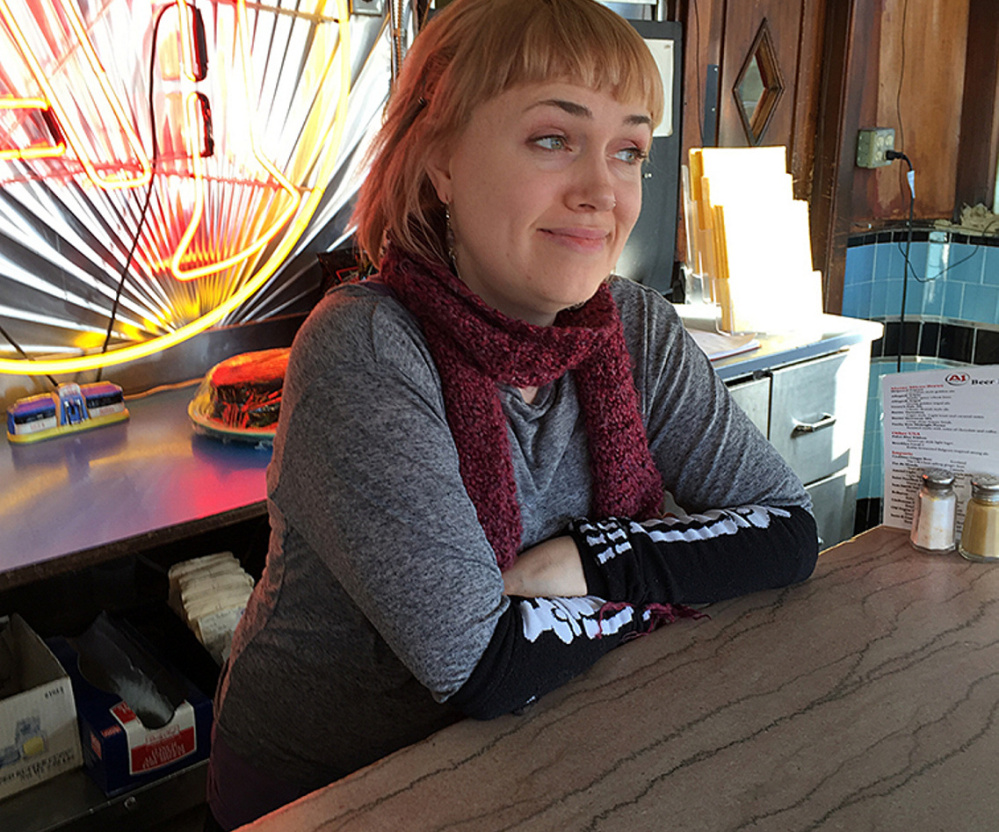GARDINER — At 38, Jessica Barker is re-evaluating her financial situation.
For about a decade, she’s been a waitress at the A1 Diner, a popular retro-style eatery on Bridge Street. It’s a job that she likes and she’s grateful for, but she’s wondering whether she can do better for herself.
One national evaluation suggests that Maine is a good place for Barker and women like her to live and work.
WalletHub, a source of personal finance tools and information for consumers and business people developed by Evolution Finance, issued its 2016 Best and Worst States for Women at the start of this month. The timing is no coincidence. Every March – Women’s History Month – ushers in a spate of lists, reports and studies that offer looks into the lives of women.
In WalletHub’s evaluation, Maine ranks fourth in the nation overall, thanks to the state’s results for Women’s Economic and Social Well-Being rank (6) and the Women’s Healthcare and Safety rank (10).
WalletHub applied different weights to 15 metrics, such as median earnings for female workers, women’s preventive health care and women living in poverty, to come up with Maine’s snapshot.
Somewhere in all that data is the experience of women such as Barker and Eryne Thibeau, a former co-worker of Barker’s who now runs her own business.
Barker grew up in Bangor and now commutes to Gardiner from Brunswick. She got started in food service by working at Wendy’s at 16. As she looked around the industry, she realized that waitressing is one of the better-paid gigs to have. When the weather is good and the tourists are stopping for meals, it’s very, very good.
“In the summer, you have to live it up and work hard and save your pennies for winter,” Barker said.
The path that Thibeau, 34, has taken is not so different. She has delivered pizzas, waited on tables and worked in retail. Five years ago, she started her own business, Quality Green Cleaning, in Gardiner.
Barker said she knows it’s time for a change, and she’s taking steps to make one. She plans to take a class in radiology. Her hope is to go to school for two years and get a job where there is a retirement package, health care and paid days off.
“I’m grateful for my job, but it’s kind of a job for a younger lady,” she said.
Eliza Townsend, executive director at the Maine Women’s Lobby – a membership organization that promotes the well-being of Maine women – takes a deeper dive into the data like that considered by WalletHub, and she sees areas where Maine needs work.
“Maine has traditionally been a leader in setting policies that benefit women and families. We had a family leave act five years before it was passed by Congress,” Townsend said. Maine has also adopted a number of policies that address domestic violence, among other things.
“Maine is one of the states that has not accepted federal funds that would allow us to insure 70,000 more people under the Affordable Care Act,” she said. “Women who lack health insurance are far less likely to get the preventive care they need,” she said.
In Maine, she said, women make up the majority of people over 65, and the poverty rate for people older than 65 is 40 percent.
“Certainly, people don’t live in poverty in their old age out of choice,” she said. “It’s an accumulation of policies, including education, earning capacity and whether women stepped out of the workplace to care for family members, either children or parents.”
These are things that both Barker and Thibeau think about.
“I’d like to see women be able to take time off when they have a baby,” Barker said. She’d also like to see paid sick leave; without it, workers like her have to stay home and forgo pay or go to work and risk spreading germs.
If Barker pursues radiology, it’s likely she will have paid time off and the ability to save for retirement.
“I don’t want to wait tables until I am 80,” Barker said. “There was a lady here working who was in her 80s.”
Send questions/comments to the editors.



Comments are no longer available on this story